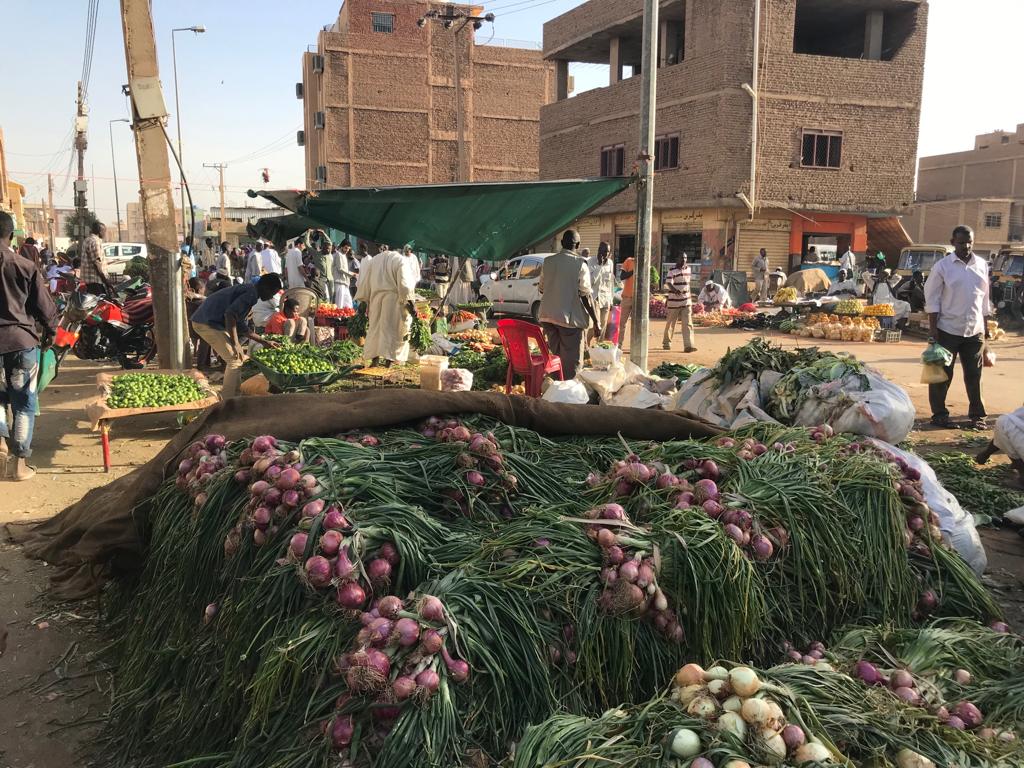Agriculture is the most important economic sector in Sudan, a lower middle income country. The high percentage of rural population (65.4%) unlike many parts of the world explains the importance of the agriculture sector in the country. The sector contributes to 40% of the national economy and 58% of the workforce is employed in agriculture (UNEP 2018). Cereal production is major in Sudan; sorghum, millet, maize and wheat are the main cash crops. Adding to this, other produce like sugarcane, dates, pulses and forage. The main exported agricultural products are the cotton, Arabic gum, sesame, groundnuts, fruits and vegetables. The main destination of Sudanese’s exports are to China, Saudi Arabia, UAE, India and Egypt.
The prevalence of undernourishment in Sudan accounted for 20 % on average of three years between 2016 and 2018. The average value of food production has declined from 163 to 104 constant I$ per person on average of three years between 2015 and 2017. Sudan is highly dependent on imports especially wheat and sugar. The value of food imports in total merchandise of exports was 31% between 2011 and 2013 (FAO 2019).
The Sudanese agriculture sector is facing many challenges including land degradation, riverbank erosion, poor pesticide management, water pollution, droughts, desertification, deforestation, over-grazing. A study done by the world bank in 2009 ranked Sudan among one of the countries affected the most by climate change in the agriculture sector.
ESCWA/SDPD received in December 2018 two technical support requests from the Ministry of Agriculture and Natural Resources in Sudan. Based on a mission conducted in March 2019, agriculture value chain assessment and development was found to be a crucial challenge. Adding quality value for products to meet local and regional market requirements is needed to improve productivity and efficiency. Therefore, capacity building for core staff on value chain development including sector selection, market analysis, intervention design, implementation and finally evaluation of interventions is vital. Cluster development to promote value chain at states level is necessary to complement the process of market based value chain development.
The specific objectives of the workshop are to:
The prevalence of undernourishment in Sudan accounted for 20 % on average of three years between 2016 and 2018. The average value of food production has declined from 163 to 104 constant I$ per person on average of three years between 2015 and 2017. Sudan is highly dependent on imports especially wheat and sugar. The value of food imports in total merchandise of exports was 31% between 2011 and 2013 (FAO 2019).
The Sudanese agriculture sector is facing many challenges including land degradation, riverbank erosion, poor pesticide management, water pollution, droughts, desertification, deforestation, over-grazing. A study done by the world bank in 2009 ranked Sudan among one of the countries affected the most by climate change in the agriculture sector.
ESCWA/SDPD received in December 2018 two technical support requests from the Ministry of Agriculture and Natural Resources in Sudan. Based on a mission conducted in March 2019, agriculture value chain assessment and development was found to be a crucial challenge. Adding quality value for products to meet local and regional market requirements is needed to improve productivity and efficiency. Therefore, capacity building for core staff on value chain development including sector selection, market analysis, intervention design, implementation and finally evaluation of interventions is vital. Cluster development to promote value chain at states level is necessary to complement the process of market based value chain development.
The specific objectives of the workshop are to:
- Improve the capacity of civil servants on value chain development and best practices for agriculture value chains that are nutrition sensitive and climate smart including non-food value chains that have high potential to increase access to food through job creation
- Discuss bottlenecks to implement value chain development in the different departments of the Ministry of Agriculture
- Propose a detailed capacity building program to transfer knowledge across the country
